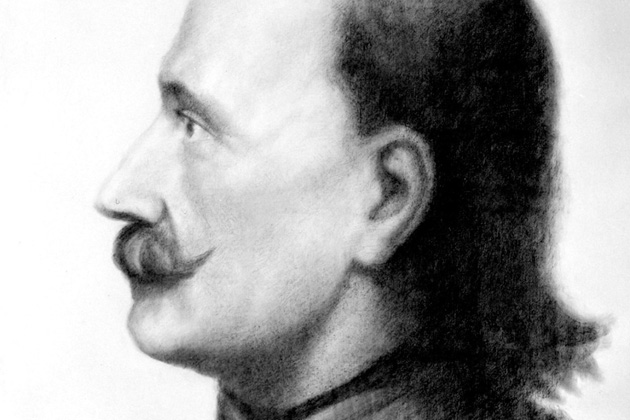Writer, Poet and soldier, Mihály Fazekas (1766-1828) was born in Debrecen on January 6th 1766 and died in Debrecen on February 23rd 1828. On one hand, he was a soldier, an army private for seven years before being commissioned as a Hussar officer, and on the other hand he was someone who was disgusted by warfare and violence of any kind.
On the surface it seems a huge contradiction of character, but to understand the man you need to understand his journey through life.

He became a student of the Reformed College in Debrecen, and from 1781 he was a student of the Theological Academy. It was here that he first became acquainted with enlightened ideas, and it was where his interest in the natural sciences and botany arose. In 1782, at the tender age of 16, he started his military career serving during the Hapsburg wars and then against the Turks in Moldavia where he lost a finger.
His poetry is mostly from later life, while living in Debrecen and it captures his distain for violence and the inequality of society during his time, bringing to light the social injustices he found.
He is most famous for his poem Lúdas Matyi (Mattie the Goose-boy) first published in 1789, made popular because of the undertones of social injustice it portrays, and where the main character, a peasant boy trying to sell geese, encounters disagreeable servants of the local squire and yet he still wins the day.
The story is one of revenge of the underdog and was the first of its kind, (its rebellious message), it created a folk hero for the poor, a hero to the downtrodden. The poem was turned into a movie in 1949 by Kálmán Nádasdy (director) and featuring the actors Imre Soós and Éva Ruttkai.
In 1789 when the poem was first published, Fazekas had returned to Debrecen and it was during this holiday from the military that he is likely to have encountered Csokonai Vitéz Mihály, with whom he became friends.
During the early years he was still enthusiastic about adventurous life, but during his long military service he became disillusioned, he always hated fighting, bloodshed and so imperial cavalry officer embraced the Enlightenment, and the battles he experienced were replaced by anti-war poems.
Between 1793 and 1796 he served as a professional hussar officer in the Rhineland, northern France, Germany but in 1796 he resigned his rank as an officer and traveled home.
He devoted the second half of his life to urban public life and botany in Debrecen, he considered poetry a passion for a cultured man. As a bachelor, he lived with his mother and sisters, held back by his love affairs, which presumably ended unhappily from marriage. His romances in Moldova and France ended with relocations involving military life. His retirement in Debrecen was made glorious by his circle of friends – Mihály Csokonai Vitéz, János Földi.
A memorial plaque to Fazekas can still be found on the wall of the house at No. 58 Piac Street, where the author once lived. There is also a monument to him on Medgyessy Promenade along side monuments to several of his friends who became famous in their own right, poets elevated to the status of state hero’s. There is also a sculpture at the University of Debrecen.
Sources:
- https://cultura.hu/kultura/fazekas-mihaly-tortenete/
- https://en.wikipedia.org/wiki/Mih%C3%A1ly_Fazekas